
Leveraging Islamic Finance to Develop a Sustainable Capital Market
Facilitating Development of a Sustainable Capital Market through Regulatory Innovation
Zainal Izlan Zainal Abidin
Deputy Chief Executive, Securities Commission Malaysia
Supporting the Development of a Sustainable Capital Market – The CIMB Story
Ahmad Shahriman Mohd Shariff
CEO, CIMB Islamic

Moderator:
Zalina Shamsudin, General Manager, Capital Markets Malaysia
Panelists:
Mohamed Rozani Osman, Senior Financial Sector Specialist, World Bank
Saliegh Salaam, Investment Manager, Old Mutual Investment Group
Shaheen Suliman, Chief Operating Officer, FNB Islamic Banking
Yasmina Francke, CEO, South African National Zakah Fund
Roundup
South African players seek to build synergy between Islamic finance and sustainable finance
Industry players in the South African Islamic finance and banking sector are looking at the potential collaboration of Shariah and sustainable finance in the Republic, and how both can possibly grow and play a substantial role in economic development.
This was the topic of discussion at the South African edition of the recent webinar titled ‘Leveraging Islamic Finance to Develop a Sustainable Capital Market’, hosted by Capital Markets Malaysia, in partnership with the World Bank, the UNDP Financial Centres for Sustainability and IFN — a series of discussions with regulators and market participants in key markets.
“Currently, Islamic assets in South Africa, at least as far as the capital market segment is concerned, is probably looking at around ZAR30 billion (US$1.88 billion), and that has been growing quite significantly over the past few years. In the mutual fund and retirement fund industry, the pool of Shariah assets makes up around 10% of the total market,” noted Saliegh Salaam, an investment manager at Old Mutual Investment Group and who was a panelist at the webinar.
“Within the South Africa context, Shariah funds have been pioneers in terms of integrating ESG [environmental, social and governance] considerations into their frameworks, and I think it really places us, as an industry, quite well for the shift that we are seeing in consumer preferences and the regulatory environment,” Saliegh added.
In the Islamic banking sector, Shaheen Suliman, CEO of First National Bank (FNB) Islamic, shared that, as the principles of ESG are inherently found within Islamic finance, it makes it easier for the bank to design products that help FNB play a role in sustainability.
To put it in perspective, the Islamic banking sector in the Republic has recorded a year-on-year growth of 12%, while the South African Muslim community makes up only 2% of the entire population.
“Where the opportunity sits is in utilizing Islamic finance structures in conventional funding because the pool is much bigger. If we only cater to the 2% Muslim population, we miss out on [a] majority of the market,” Shaheen explained.
“We understand the significant amount of activity in the non-Islamic financial side (in terms of funding sustainable projects) and so we look at overlaying some of the Islamic structures on existing projects and seeing how we can leverage a different form of financing to assist in growing the sector,” Shaheen added.
In terms of the support the market players are seeking, Saliegh said a framework that allows mutual funds to price in sustainability elements more robustly and accurately and a regulatory or tax regime that would unlock incentives to invest in sustainability are key.
Meanwhile, Yasmina Francke, CEO of the non-profit South African National Zakah Fund, said: “We are looking for long-term sustainable relationships with the for-profits and commercial entities to make way for impact investing.”

Moderator:
Zalina Shamsudin, General Manager, Capital Markets Malaysia
Panelists:
Mohamed Rozani Osman, Senior Financial Sector Specialist, World Bank
Akeem Oyewale, CEO, Marble Capital
Norfadelizan Abdul Rahman, Managing Director, Taj Bank
Patience Oniha, Director-General, Debt Management Office Nigeria
Roundup
Opportunities for Islamic finance in Nigeria can extend to sustainability, say market players
As Islamic finance begins to take shape in Nigeria with the increase in non-interest transactions and the issuance of new regulations to support them, the opportunities for sustainable finance has also grown, according to the stakeholders.
A group of panelists led this discussion at the Nigerian edition of the webinar titled 'Leveraging Islamic Finance to Develop a Sustainable Capital Market', hosted by Capital Markets Malaysia in partnership with the World Bank, the UNDP Financial Centres for Sustainability and IFN.
"Nigeria has issued three Sukuk facilities since 2017, raising over a billion naira, all dedicated to road projects, and we are in the process of issuing another Sukuk sometime in mid- to late December. (This interest in Sukuk) can be extended to sustainable projects, so opportunities certainly exist," said Patience Oniha, the director-general of the Debt Management Office of Nigeria, referencing the overlap between the Shariah principles that govern Islamic finance and those of sustainable finance.
Supporting this, Akeem Oyewale, CEO of Marble Capital, which focuses on impact and Shariah compliant investing in Nigeria, added: "We've seen a bit of growth in Islamic finance especially on the back of the government Sukuk issuances, and now the expectation is that to fund infrastructure in a sustainable way, we have to use Sukuk."
In the private sector, Marble Capital has also worked with a power company that found green Sukuk to be the best route to raise funds, Akeem added. "We are estimating the demand to go up to NGN2 trillion (US$4.86 billion) in the next few years."
There remain challenges, however, and market players agree that the first steps toward integrating sustainability into Islamic finance need to be taken.
As one of these first steps, Akeem suggests the Nigerian regulators encourage corporate entities to own one or two of the UN sustainable development goals (SDGs) and to channel their corporate social responsibility investments toward those SDGs.
Mohamed Rozani Osman, the senior financial sector specialist at the World Bank, noted that a strong but simple step that would deliver high dividends is continuous capacity building and knowledge sharing. "When you build the capacity and awareness of the financial sector of a country, the people become more interested in sustainability and this in turn spurs innovation, with products customized for local needs."
Speakers
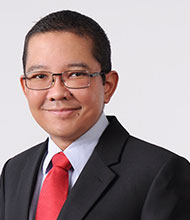
CEO, CIMB Islamic
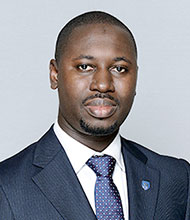
CEO, Marble Capital
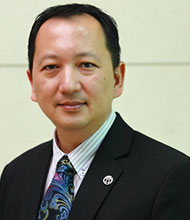
Senior Financial Sector Specialist, World Bank
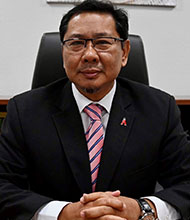
Managing Director, Taj Bank
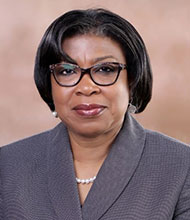
Director-General, Debt Management Office Nigeria
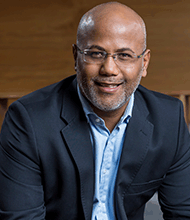
Investment Manager, Old Mutual Investment Group
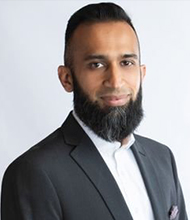
Chief Operating Officer, FNB Islamic Banking
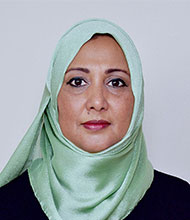
CEO, South African National Zakah Fund
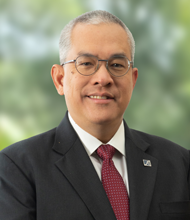
Deputy Chief Executive, Securities Commission Malaysia
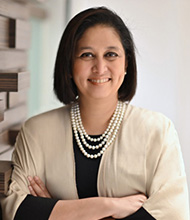
General Manager, Capital Markets Malaysia

